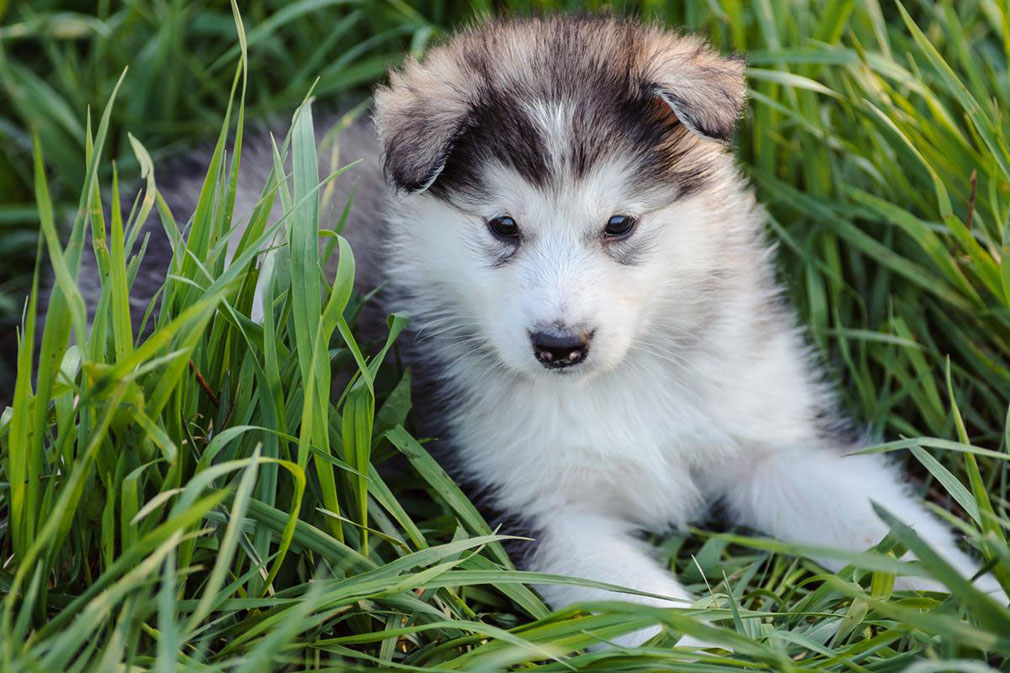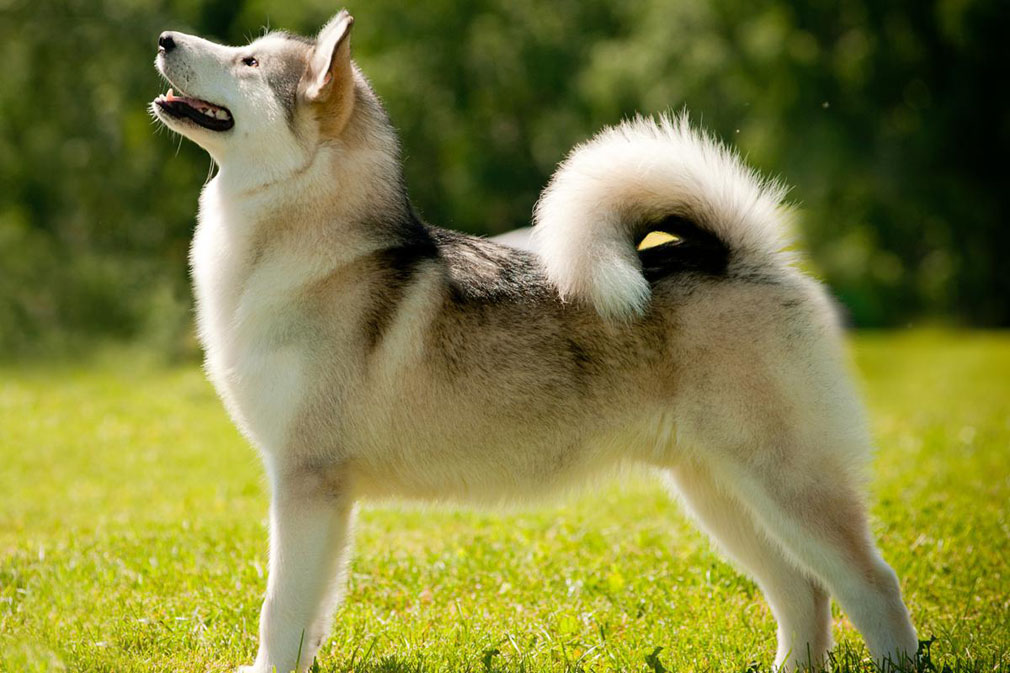Alaskan Malamute


 Puppy
Puppy
 Fully Grown
Fully Grown
Alaskan Malamutes are true pack animals. They need the company of other dogs or people and don't do well being home alone.
They are highly inquisitive - they like to test new objects for their bite resistance and will put their nose into every bag they can find.
Alaskan Malamutes love digging and will turn all the plants in your garden up side down ... but you can't possibly stay mad at them when they bat their beautiful eyes at you with a look of pure innocence!
Be warned, they are highly active and need a minimum of three hours exercise a day ... and a relaxed walk around the neighbourhood simply won't do. We recommend teaching them to run alongside a bike or pull a cart with weight to ensure they get their daily work out.
Alaskan Malamutes have no protecting impulse at all ... they hardly ever bark and might not even react when the doorbell rings or visitors arrive!
Lastly, if you are a clean freak then don't even think about getting an Alaskan Malamute as you will find fur in every inch of your home and car, especially when it's shedding season.
| Weight: | 36-43 kg |
| Health risk: | Very high |
| Life expectancy: | 12-16 years |
| Coat: | Long |
| Grooming intensity: | High |
| Monthly cost (food): | Average |
| Trainability: | High |
| Activity level: | High |
There are many sources to get your Alaskan Malamute from. Considering the number of homeless dogs without a future, we strongly encourage you to consider rescuing a dog. Your local shelter or rescue organisation can be a helpful place to start, or try contacting your local or national breed club or a reputable breeder and asking if they have pets available for rehoming. Many rescue organisations have active Facebook pages, which can also be a good place to enquire.
Here are some links that could be useful for finding an Alaskan Malamute to adopt:
To help your rescued Alaskan Malamute to settle into your home, our Rescue Dog Guide gives you tips and advice on bringing your rescue dog home.
If you decide you’d prefer to get your Alaskan Malamute from a breeder, the following guides will help you to find a responsible breeder:
The following organisations will be able to help you find breeders in your state in Australia. They will also be able to connect you with your local breed clubs, which are always a great source of information in regards to finding good breeders and rescue organisations.